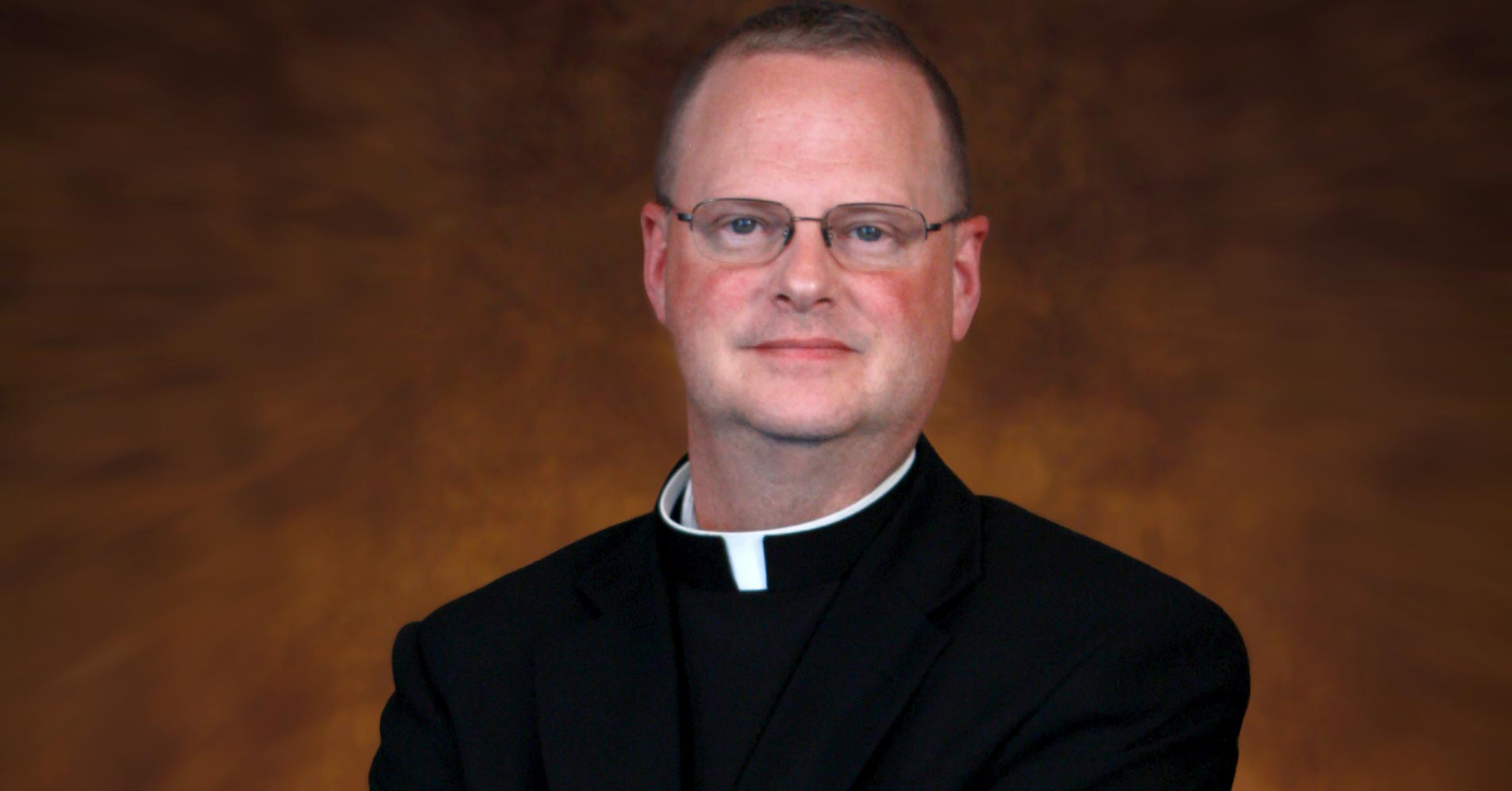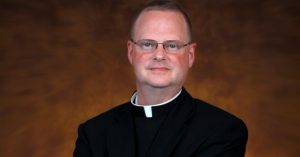
A few weeks ago the priests and deacons of the diocese gathered with our bishop and prayed a special Evening Prayer in which we recalled, by name, the deceased clergy of our diocese. It is always a powerful and meaningful time as the names flow over us like water and we find ourselves lost in the mystery of the names of those we have never met, know nothing about, and yet, are our brothers.
As we move closer and closer to our days, the older priests begin to smile and nod silently, and then the middle-aged priests soon join them, and then, finally, the younger priests begin to recognize names as they are proclaimed.
There are several I keep an ear open to hear each year, and one of those is Father Robert Flannery. I have written previously about the extraordinary manner of his life, and the manner of his holy death, but this year I found myself sitting in the soft quiet of the beautiful Saint James Church in Chamberlain thinking about the manner of his burial.
Priests are expected to plan and prepare for their own funeral liturgies. This can be a time when the idiosyncrasies of a lifetime celebrating funerals start to show themselves. I know several priests who have forbidden “On Eagle’s Wings” to be played at their funeral, or for ham sandwiches to be served afterwards; after many years, you just yearn for something, well, different.
Father Flannery had a similar demand. He refused to have his body “prepared” for his funeral. There was to be nothing added to his body to “fill it out,” and definitely no make-up was to be applied.
I was honored to be a part of the priest’s choir that would be singing at his vigil. We gathered in the choir loft at St. Mary’s in Sioux Falls to practice during the visitation time, and it gave me a unique venue in which to watch people pay their respects.
The line to the simple coffin at the front of the church was long, and people were having whispered conversations as they waited, and our little choir practiced, and one by one people approached the coffin and many of them, so many of them, gasped or simply stood in a gentle form of shock.
They had never seen a real dead body before.
Most everyone had seen a dead body, of course, but not a real one, not sunken, shriveled and grey. The difference was stark and even I, who had not seen a real dead body before, was stunned by what I saw. This was my friend, the man who had vested me at my ordination and he was dead…and it showed.
It was a difficult moment, but an important one for the reality of it all.
When someone dies, the burial customs in our culture tend to focus on the life past, we wish the body of our loved one to look like they did when they were alive, we desire a “celebration of life” so that we might rejoice. We speak at funerals about heaven as simply the eternal experience of the momentary fun of this life, heaven becomes endless rounds of perfect golf, or always catching “the big one” on a pristine lake.
These are comforting sentiments in their own way, but they do nothing with the reality of death. Widows still have to return to empty houses; death and emptiness refuse to be painted over. Death is real, it is ugly, it is painful and unyielding. At its worst, it is the loss and emptiness that is most agonizing; the excruciating separation.
For death’s defeat to be a reality for us, we first acknowledge how cruel an enemy it is. We acknowledge that death does not just take the one we love, but also takes the lives of those left behind, because nothing is ever the same again. Our faith proclaims that death must be defeated, eternal life assured for those who die, and the separation ended for those who remain.
Our Rites of Christian Burial are meant to bring forth the majestic power of our faith, the death of our death in Baptism, the life we live in the reality of Christ’s cross and resurrection. We understand more fully the “communion of saints” as not some credal statement, but the very thing for which our hearts ache; that we forever love and are loved, and are connected to those who have gone before us.
When we let ourselves experience the horrible power of death, we understand that only the infinite love of God could defeat such an enemy. Only the infinite love of God could turn such and enemy into a friend, who ushers us into deeper communion, deeper love, fullness of life, and the joy of the face of God.

